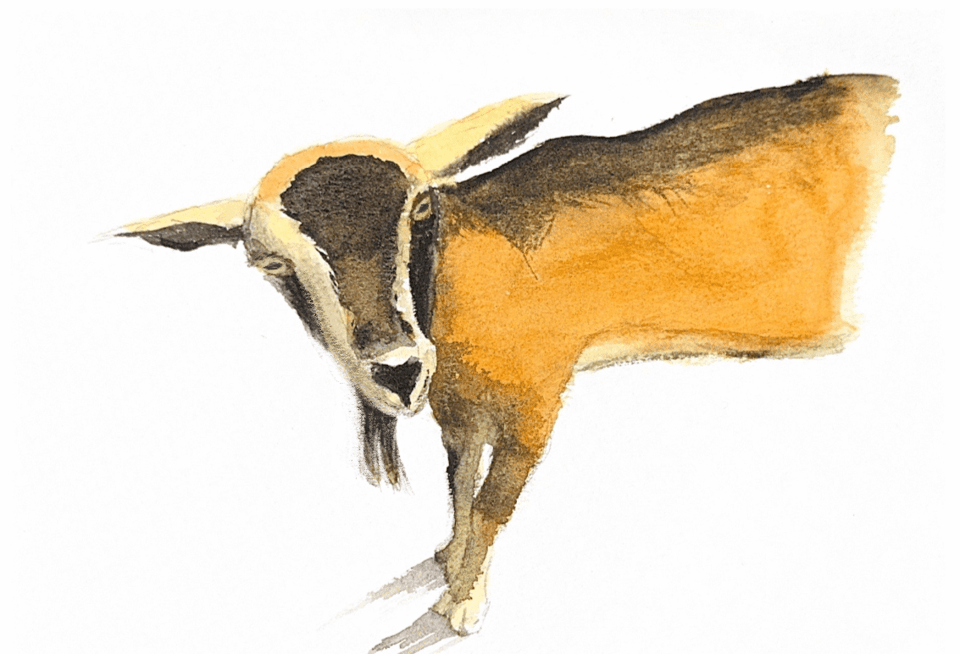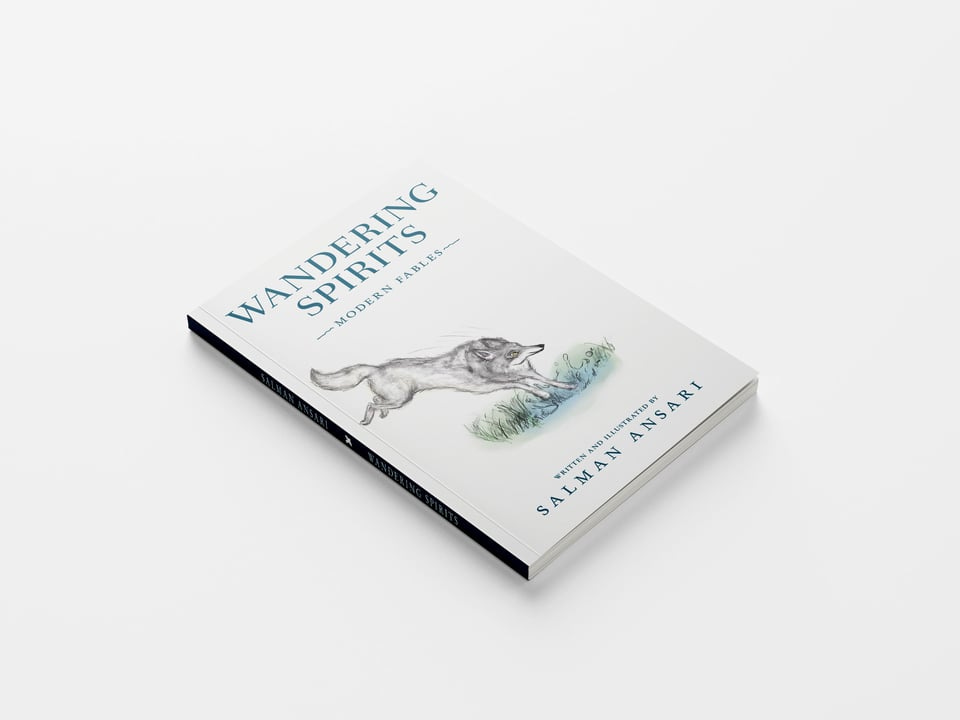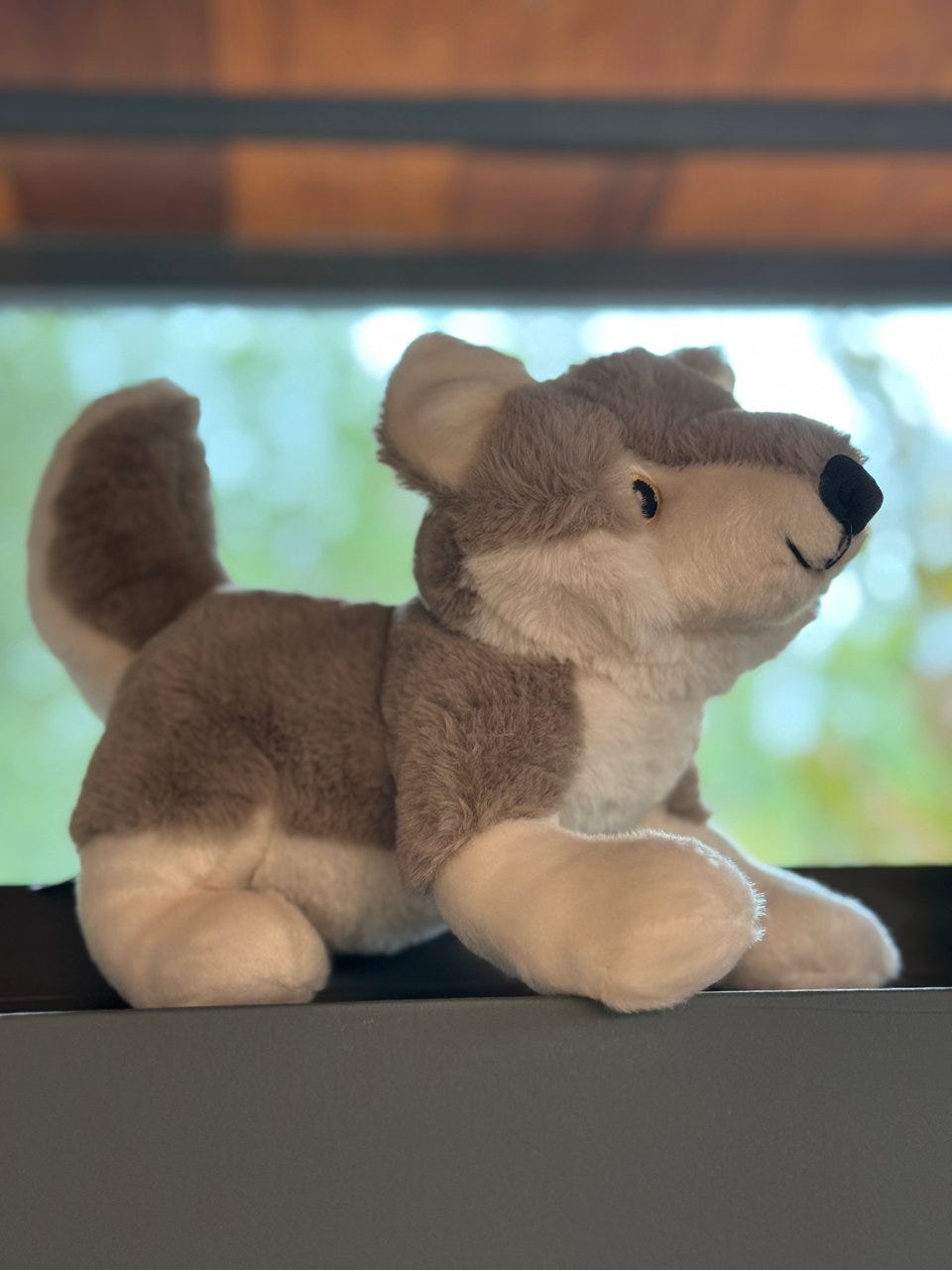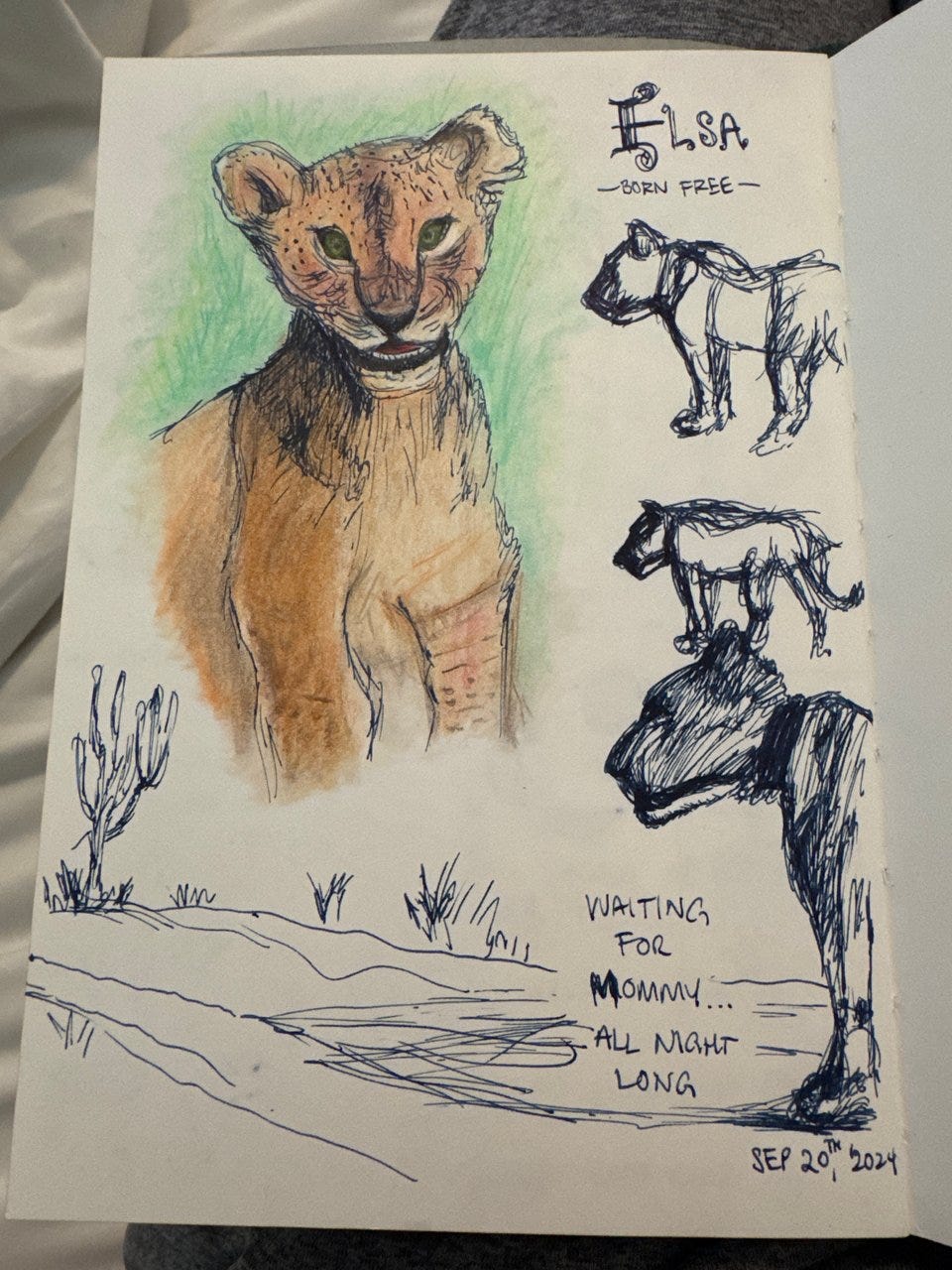🦊 I met Gordon Ramsay
Alright, technically it was a ram named Gordon Ramsay, but I’d argue that is even cooler than meeting the celebrity chef. The ram let me pet him, and did not scream at me. So, that’s a win in my book. More on the ram later.
Welcome to the 138th edition of Quick Brown Fox, a newsletter by me, Salman Ansari. If you forgot who I am, I don’t blame you, because who can keep track of newsletters anyway? As a refresher: I am that guy who is weirdly obsessed with foxes, juggles software engineering with creativity, wrote and illustrated a book of fables, and has been publishing this newsletter since the first edition dropped back in December of 2019. I write about creativity, philosophy, and self-awareness, among other things. I also really like to draw.
Five years of newsletter-ing. Wow. Good job, me! This is now the longest “project” I’ve ever worked on, exceeding the five years I spent building a startup straight out of university. (Note to self: I should probably tell that story sometime. Would you want to hear it?)
You might notice this edition looks and feels a bit different. That’s because I switched my newsletter host from Substack over to Buttondown. I have been wanting to do this for a while now, and am relieved it’s finally done. I wanted to keep things simple, and focus on publishing to my personal blog and this newsletter, without the distractions that come with Substack. For more of my thoughts on all that, check out my prior edition, Reviving the Open Web.
The transition was seamless, but if you notice anything wonky, forgive me (and please let me know by replying to this email.) My full archive still lives at letter.salman.io, since that is a custom domain I’m hosting, so I was able to port all the archives over cleanly thanks to Buttondown’s import features. The images, links, etc. all worked out of the box.
I feel lighter already.
Today’s edition focuses on animals—goats, sheep, and wolves. I’ve been spending a lot more time with animals lately, and I’ve also been researching the plight of animal wildlife. There is a lot of suffering in this story, but there is also hope. We have the power to alter outcomes.
In the coming months, I plan to write more about animals. I want to commune with them, listen deeply, and channel their messages into my writing. I know this topic is a bit different than the stuff I’ve written on in the past. But then again, I’ve always been writing with animals, whether it be the comic mascots of this newsletter or the characters in my fables. So, I guess this is a natural evolution.
I want to give animals a voice. I hope you’ll find room to hear what they have to say.
Onward!
Little Farm
I visited a place called Little Farm at Tilden Nature Reserve, up in the hills of Berkeley, California. It’s a working farm with all kinds of animals—sheep, goats, geese, chickens, rabbits, turkeys, cows, and more. I noticed I was the only adult there who wasn’t attending as a child’s accompaniment. But then I reminded myself I was chaperoning my inner child, and I continued on my merry way to meet the animals.
Everywhere I looked, children were stuffing the animals’ faces with little pieces of lettuce they had purchased at the entrance. I decided right away that, rather than feeding them, I would spend time with the animals, pet them, and sketch them.

Given the time it takes to sketch, I was only able to be with the goats and sheep before several hours had passed, and I needed to go home. It was a good tradeoff—I got to spend quality time being present with the animals, rather than checking them off as if the farm were a list. I plan on going back soon. Hopefully this post will have a part two.
I hope you enjoy the tales of these fine creatures, and my drawings that accompany them…
Save the Wolves
If you’ve got a copy of my book Wandering Spirits, you’ll remember that a wolf is the characters on its cover:
Recently, in the United States, gray wolves were removed from the endangered species list. Almost immediately, a massacre of wolves ensued. They desperately need our help.
When I learned of this, I was heartbroken. I can’t imagine a world without wolves, where stories like mine would be fictional in a double sense—both the story and the animal would become fiction. We cannot let that happen.
You might be thinking, “If they were removed from the endangered species list, doesn’t that mean they’re doing just fine?” That would make sense. But few things about the way humans live makes sense. Sadly, animals removed from the endangered species list are often in even more danger. It goes like this:
A species starts to die out, usually due to human influence (e.g. poaching, unrestricted hunting, or second-order effects from climate change.)
They get added to the endangered species list, which protects them at the federal level. (This means states, which usually have their own rules, cannot hunt them.)
They recover slightly in one area or state, and a petition is made to remove them from the endangered species list. This happens even though they are still endangered in many other areas.
Once hunting season is open again, hunters go wild on the wild. It is utterly devastating to the populations.
That’s basically what happened to the gray wolves.
To learn more about their plight, read this recent post from Born Free USA, and please consider donating to the Save the Wolf Foundation. The best way to support them is to Adopt a Wolf, which you can do for as little as $5 a month. As a bonus reward, you’ll get this adorable little wolf plushie:
P.S. You might have come across Born Free before—they are the foundation established after the infamous domestication and eventual rewilding of Elsa the lioness. There is a wonderful book and film, Born Free (1966), that tells Elsa's story. I watched it recently and loved it.
Here’s a quick sketch I did while watching Born Free, capturing the heart-wrenching moments when Elsa watches her (human) mother leave her side.
Elsa waited for her adopted mother by the gate, all night long. Precious few humans are able to return the tireless devotion animals give them.




